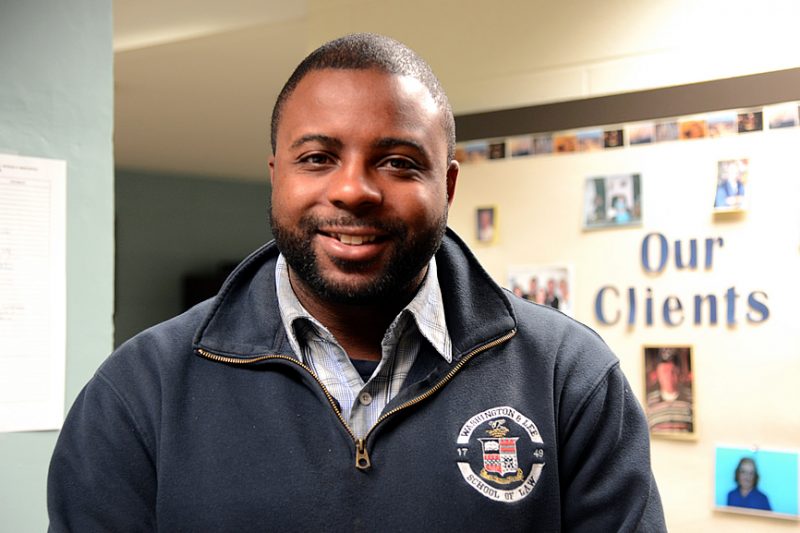Experience, W&L Law: Inside the Black Lung Clinic with Dowin Coffy ’18L
Dowin Coffy is a Registered Nurse and third year law student. He is devoted to understanding the finance, delivery and regulation of healthcare. This year, he is serving as a student attorney in the Black Lung legal clinic, which assists coal miners and survivors who are pursuing federal black lung benefits.
Why did you choose the Black Lung Clinic for your clinical experience?
I chose this clinic because healthcare is the most regulated industry in the United States, and I wanted experience dealing with a regulatory agency. The formal name for this clinic is the Advanced Administrative Litigation Clinic, and in that capacity, we deal with the United States Department of Labor and their adjudicative procedures under the Black Lung Benefits Act.
I also wanted to utilize my knowledge as a healthcare clinician. I figured there would be a lot of medical terminology and medical records that I would have to read. In addition, I just like helping others, and I appreciate the fact that I am making a tangible difference in the lives of others.
Describe a typical week in the clinic.
It can be chaotic at times. We deal with real and established law firms, who have real lawyers.
I personally have 5 cases that I am expected to keep a handle on. We have many deadlines as well as correspondence from lawyers and clients that we are expected to keep up with.
We are also constantly developing additional evidence in order to support our case. This consists of gathering evidence from hospitals, combing through doctor’s records for evidence of things such as right-sided heart failure, smoking history or lung cancer. We also have to grasp the pathophysiology of pneumoconiosis and understand how tests that establish total disability, such as a pulmonary function test, are administered and what the results mean.
In addition, we practice direct and cross-examinations for court proceedings. These are recorded, and Prof. MacDonnell, the clinic director, provides feedback. There is also a great deal of writing, including briefs and memos. The typical time commitment is expected to be 20 hours per week.
What has been hardest about your work in the clinic?
This clinic is one of the most time-consuming that the school offers. It demands that one develop an erudite understanding of pneumoconiosis and other medical diseases. The case files are huge, and there is a voluminous amount reading involved. There can also be weeks, such as when I was preparing to do a deposition of a doctor, which can consume all of your time. But you do have real clients with pecuniary interests in these matters.
In what ways has your clinical experience added value to your legal education?
If I had to work on a black lung case in a real administrative hearing tomorrow, I am confident that I could do a good job. I have improved tremendously in oral advocacy from the time I began, and my understanding of administrative adjudications has been greatly enhanced.
How is your participation in the clinic helping you achieve your professional goals?
I chose to attend law school to develop the requisite skills to become a credible professional, and my professional goals are being advanced with each passing week. I am a big believer that in life, experience is the best teacher.
 Dowin Coffy ’18L
Dowin Coffy ’18L
You must be logged in to post a comment.